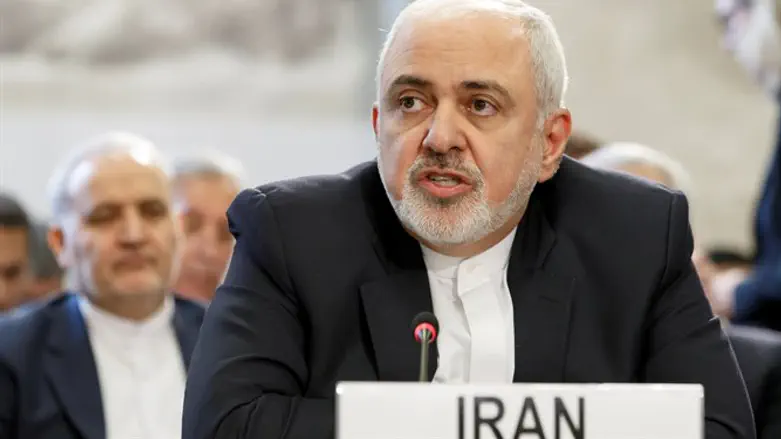
The United States has decided not to impose sanctions on Iranian Foreign Minister Mohammad Javad Zarif for now, two sources familiar with the matter told Reuters on Thursday.
Treasury Secretary Steven Mnuchin said on June 24 that Zarif would be blacklisted as part of sanctions targeting Iranian leaders announced by President Donald Trump.
Zarif later criticized the US and its allies, saying on Twitter they “despise diplomacy, and thirst for war.”
Blacklisting Iran’s chief negotiator would be unusual because it could impede any US effort to use diplomacy to resolve its disagreements with Tehran over Iran’s nuclear program, regional activities and missile testing, noted Reuters.
The sources did not give specific reasons for the decision, which came after two months in which US-Iranian tensions have soared because of attacks on tankers in the Gulf that the United States blames on Iran, despite its denials, and Iran’s downing of a US drone that prompted preparations for a US retaliatory air strike that was called off minutes before it was due to hit.
“Cooler heads prevailed. We ... saw it as not necessarily helpful,” said one source familiar with the matter who spoke on condition of anonymity, saying Secretary of State Mike Pompeo had opposed designating Zarif “for the time being.”
In a sign of how close Washington came to taking action, the US Treasury internally circulated a draft press release announcing sanctions on the Iranian foreign minister.
Zarif is expected to attend a ministerial meeting at the United Nations next week on sustainable development goals, which aim to tackle issues including conflict, hunger, gender equality and climate change by 2030.
To do so, the United States would have to grant him a visa, another sign Washington is holding off on sanctions for now.
Asked why Zarif had yet to be sanctioned, a Treasury spokesman referred to a comment on Tuesday by a senior Trump administration official who told reporters, “We’re obviously exploring our various avenues for additional sanctions against Tehran. Obviously, Foreign Minister Zarif is a figure of key interest and we’ll update you ... as we have more information.”
The State Department did not immediately respond to a request for comment on the decision.
The department’s spokeswoman Morgan Ortagus said on Thursday Washington wants a diplomatic resolution and repeated Trump’s comment that he is willing to meet Iran “without preconditions.”
“We seek a diplomatic solution,” she told reporters. “We have asked our allies to ask Iran to deescalate the situation, not to harass American allies or interests, not to terrorize the region.”
Iran, angry over the US withdrawal from the 2015 nuclear deal, announced earlier this week that it would expand its uranium enrichment to 5%, beyond the limit permitted in the agreement.
Trump on Sunday said in response to Iran’s uranium enrichment, “Iran better be careful, because you enrich for one reason, and I won’t tell you what that reason is, but it’s no good. They better be careful.”
Pompeo, meanwhile, warned Iran that it would be subject to new sanctions because of its breaching of the terms of the nuclear deal.
Mnuchin did not say in late June what sanctions would hit Zarif. On July 4, the New York Times quoted Zarif as saying in an email that he did not own any property or have any bank accounts outside Iran. “So I have no personal problem with possible sanctions,” he said.
The former officials, who spoke on condition of anonymity, said a decision not to sanction Zarif could be a hint Washington wants to preserve the option of diplomacy even if it appears unlikely for now.
